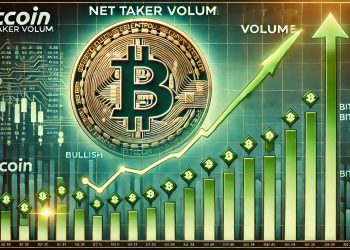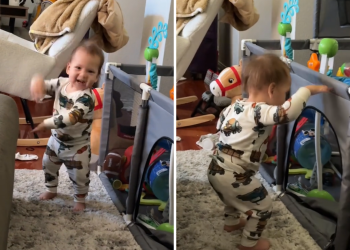
Photo: Brendan Smialowski/AFP via Getty Images
This morning, the Democratic National Committee will begin a multi-round election to choose its new chair. Former President Joe Biden’s appointee, Jamie Harrison, is on his way out, and an array of party insiders and outsiders are competing to replace him.
The DNC’s 448 voting members include hundreds of Democrats elected and selected through state parties, along with smaller numbers of appointees, elected officials, and representatives from party groups like the Young Democrats of America. They will cast ballots for a new chair at a time when the Democratic Party itself is adrift, with no clear leader and no strategy for fighting the Trump agenda or regaining power. As one DNC member told me, “The DNC is not really talking about what went wrong and what we did wrong.”
With Republicans running the White House and Congress, the person who wins the DNC chair race will take on a critical role in U.S. politics. They will serve as a national spokesperson for the Democratic Party while simultaneously leading a fundraising and campaign organization that received and disbursed over $450 million in campaign funds over the last two years.
Given these realities, the DNC chair race has attracted national media attention — mostly of the horse-race sort. What hasn’t gotten the attention that it deserves is the curious reality of just how undemocratic the DNC actually is, and how this perpetuates the risk of national political defeats for the Democratic Party as a whole.
In writing this piece, I reached out to 427 of the DNC’s 448 voting members and interviewed 19 of them. Those who spoke with me came from ideologically, geographically, and racially diverse backgrounds. They included Democrats from rural and urban communities, grassroots party members, elected officials, and party insiders and critics alike. Most agreed to speak on the condition their names wouldn’t be used.
What emerged from these conversations is a picture of a DNC that is built to be an undemocratic, top-down institution, unable to truly leverage the wisdom and guidance of the DNC members who hail from local and state networks across the country. This is especially true when those local and state members disagree with the DNC’s posture or strategic choices.
Harrison, the outgoing chair, did not respond to interview requests, and DNC Executive Director Sam Cornale did not reply to written questions regarding the concerns raised by DNC members to me. If these member concerns are not addressed, there’s reason to fear the organization will be unable to effectively steer the party away from the kinds of electoral crises that it has faced in recent years, including its resounding national defeat in 2024.
A Culture of Deference
The DNC has several responsibilities: setting the Democratic presidential primary election calendar, organizing the Democratic National Convention, determining the Democratic Party platform, and supporting the election and reelection of Democratic presidents.
In practice, what this means is that when a Democrat holds the White House, that president decides who should be DNC chair and in turn dictates the DNC’s strategic and organizational priorities. And so a key contradiction emerges — that which is in the perceived self-interest of a sitting Democratic president is not necessarily in the interest of the Democratic Party.
The 2024 elections were a case in point. President Joe Biden may have wanted to run for reelection, but America would have been better served if DNC members were empowered to publicly challenge that decision and force a national debate to happen much sooner. But Biden controlled the DNC through Harrison, his hand-picked chair, and the culture of the DNC is not one that rewards dissent.
Even after news of Biden’s cognitive decline started to leak out, significant pressure was brought to bear to keep everyone in line. In the words of one very angry DNC member, “The Democratic Party fucked up by wholeheartedly supporting Biden when everybody and their brother knew that he could not win the general election.” The member said anyone who spoke out against the process became a target. “The character assassination that happens when people raise legitimate issues is a significant problem,” they said. “I’ve seen it over and over again.” They pointed to numerous Democrats’ attacks on former Rep. Dean Phillips, D-Minn., who challenged Biden in the 2024 primaries, as one example.
This highlights a central tension inside the committee. Does it exist to shape the party’s direction, or provide a perfunctory sign-off?
“I know we have a $300 million budget, but I have no idea where the $300 million budget goes. I don’t know more than your average Democratic voter.”
The DNC’s 448 members serve as a kind of board of directors for the organization, though in reality, a much smaller number have leadership roles. (DNC members also serve as superdelegates to the Democratic National Convention that occurs every four years, though most convention delegates are selected through separate state primaries and caucuses.)
In my interviews, multiple DNC members articulated variations of the sentiment that they feel like rubber stamps expected to give their blessing to strategic and financial decisions with little oversight. As one DNC member put it, “I know we have a $300 million budget, but I have no idea where the $300 million budget goes. I don’t know more than your average Democratic voter.”
Members said their meetings don’t feel like a place for participation or governance. They described these gatherings as a combination of party presentations and social time, as opposed to real debates or discussions. During Covid, for instance, one member said that meetings were held via web conference, with the chat function turned off. And while the potential for real decision-making can occur at the DNC committee level, “committees are completely rigged, with the chair appointing whoever they want,” one DNC member told me.
Until very recently, DNC members weren’t even given access to each other’s contact information. One DNC member suspected that this was an effort to prevent independent organizing among members and to protect the privacy of higher-profile members, such as prominent elected officials or donors.
To preserve the culture of deference to Democratic Party elites, DNC members are chosen through a system that appears designed to dilute the power of local Democratic Party voices and representatives. Of the 448 DNC members who ostensibly govern the DNC, 75 are elected by the DNC members themselves. In practice, these 75 DNC members are actually appointed by the DNC chair.
As one member described it, building majority support for internal reforms is a difficult task made harder by the presence of 75 appointed votes. If the DNC chair or a Democratic U.S. president opposes a change to how the DNC operates, these appointed votes make it “almost impossible” to build the needed majority.
Money in Democratic Politics
Coming out of a disastrous 2024, a common progressive critique is that the Democratic Party is beholden to corporate and wealthy interests that steer the party away from populist, working-class-oriented campaigns and policies. They point to the example that Kamala Harris managed to outspend Donald Trump yet lost the popular vote.
In some ways, the race for DNC chair has itself become a microcosm of this tension between money, transparency, and winning elections. Minnesota Democratic–Farmer–Labor Party Chair Ken Martin and Wisconsin Democratic Party Chair Ben Wikler are considered the front-runners based on their declared, though likely inflated, DNC vote counts. But neither has disclosed how much money they have raised for their campaigns, who their donors are, or how much they have spent.
Perhaps sensing an opportunity, last week DNC chair candidate and former Maryland Gov. Martin O’Malley disclosed his donor list and total funds raised: $350,000. O’Malley, who is presumed to be in third place, called on Wikler to release his donors’ names as well.
“The cost per vote in these elections raises a lot of questions for me.”
Vinod Thomas, a DNC member from North Carolina, said multiple chair candidates and members of their staffs told him they were spending either six- or seven-figure sums on their campaigns. “Considering that there are only 448 eligible voters, and the win number for the race is 225, the cost per vote in these elections raises a lot of questions for me,” Thomas said.
I requested interviews with Martin, Wikler, and O’Malley, as well as Faiz Shakir, a late entry to the campaign. Only Shakir agreed to my request for an on-the-record interview.
Their reluctance to speak makes sense in a way: They only need the votes of 448 very specific people and can strategically ignore those who might ask troublesome questions.
Shakir, the former chair of the Bernie Sanders 2020 presidential campaign, told me in an interview that he had raised “zero dollars” and that his campaign expenses were “slight” and “out of pocket.” He added, “I couldn’t in good conscience ask people to give me money for a PAC, which I then use to send mailers to delegates and buy branded water bottles and throw cocktail parties. That’s just not the way I think we should raise and use money. I’m doing it the old-fashioned way — trying to talk over the phone, one on one.”
“I couldn’t in good conscience ask people to give me money for a PAC.”
In our conversation, Shakir laid out his vision for a Democratic Party that stands in the trenches with working-class voters and their struggles for economic fairness. He envisions a Democratic Party that is actively supportive when workers face off against the injustices in their lives, including when working-class communities go on strike, challenge utility rate hikes, oppose unjust evictions, or fight addiction in their local communities.
Shakir argued that if the Democratic Party wants to be the working-class party, it should use its resources to stand in solidarity with workers and prove through actions and words that “We stand with you.”
“When they see you don’t act with that kind of fire in your belly, they stay home,” he said.
Can the DNC and Democratic Party change to address these concerns? On the one hand, the DNC is not the sole or necessarily even most powerful organization in the Democratic Party. It exists within an alphabet soup of party entities that focus on overlapping concerns: congressional campaigns, state races, and more. In many cases, the funds that the DNC receives and spends actually originate with these other Democratic entities.
But the DNC is unique in that its voting members draw in significant part from state and local Democratic Party communities. Because of this, the DNC could in theory be transformed into a robust organization that helps to hold the Democratic Party accountable to its base — and as a result, makes the party as a whole more responsive and likely to win in national elections.
One reform-minded DNC member was cautiously optimistic that change could be coming. They argued that the three front-runner candidates for DNC chair — Martin, Wikler, and O’Malley — have advocated for reforms in the tactics, structure, and operations of the DNC. The candidates’ statements and proposed reforms have addressed the internal dominance of consultants, reducing the number of DNC chair appointments, devolving more power and funding to state parties and communities, and improving Democrats’ communications strategies. The DNC member saw these proposed reforms as helping make the Democratic Party a “more mobile and change-oriented organization.”
“There’s a broad understanding that we do need to change how we do business or we are not going to survive as a party, or even as a country,” the member said.
Starting with today’s election, we will begin to see just how deep that understanding is, and whether it leads to substantive changes in how the Democratic Party engages the public and competes for power.




















